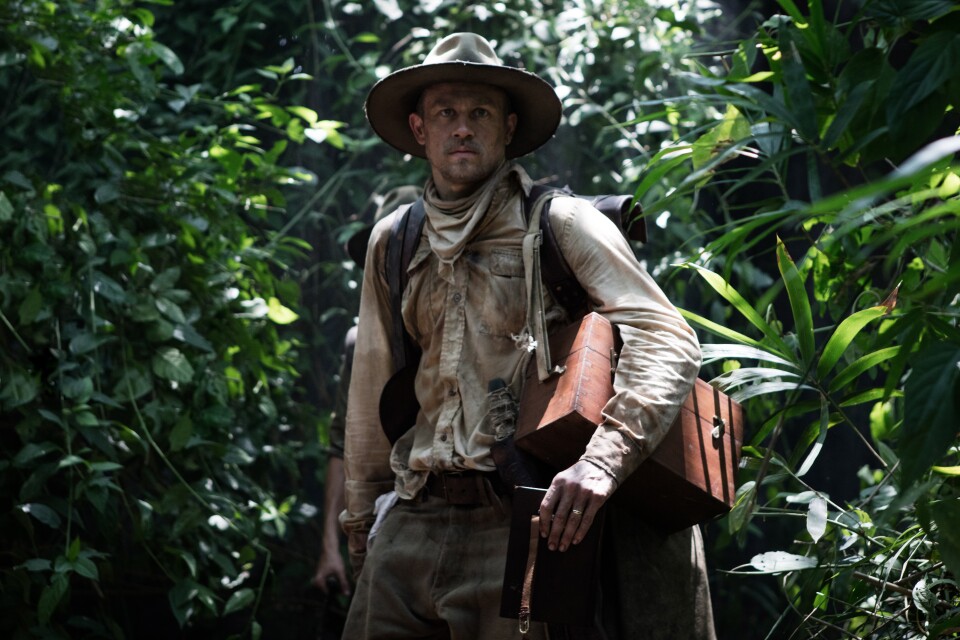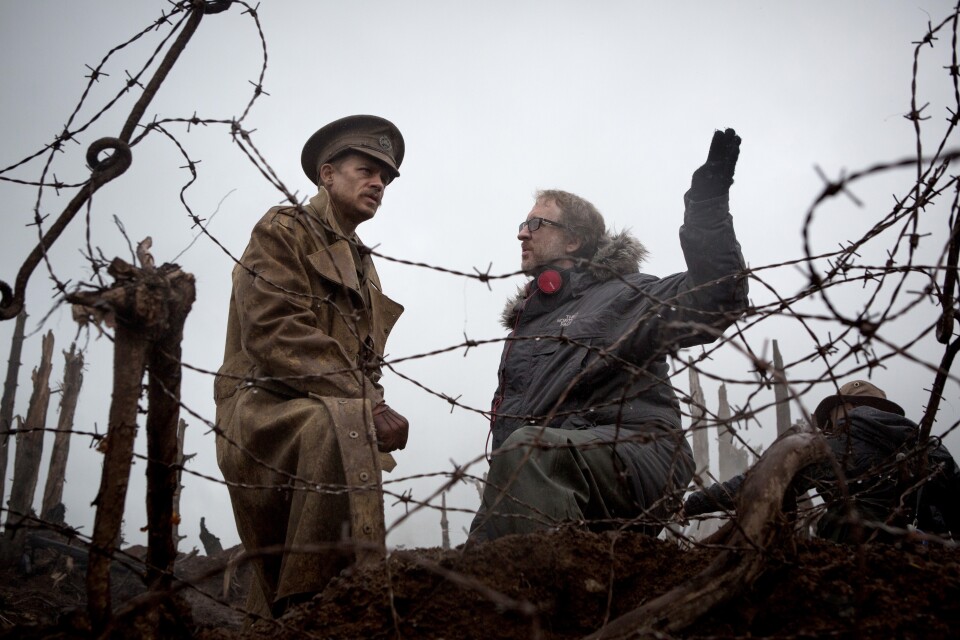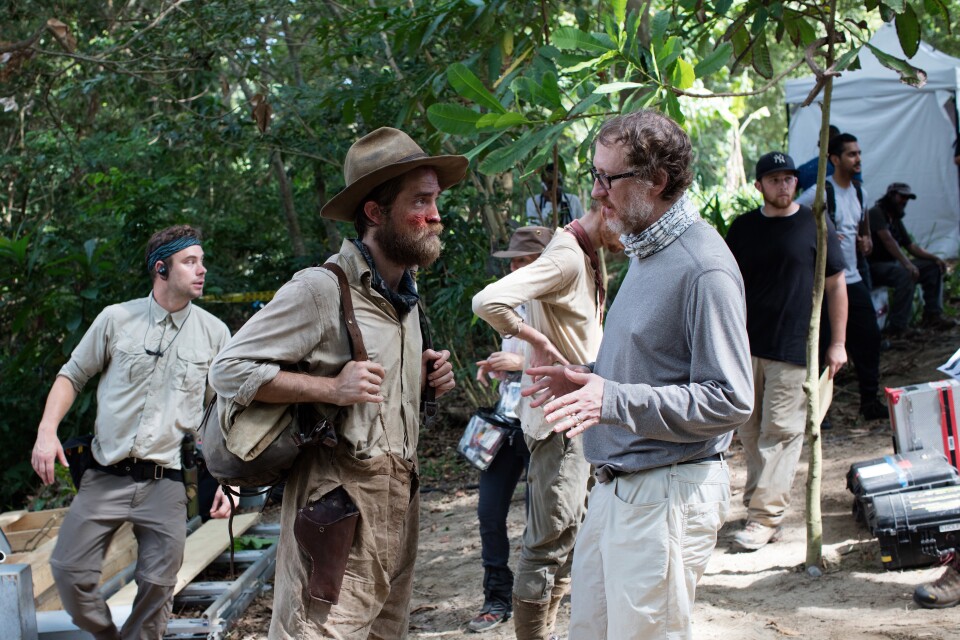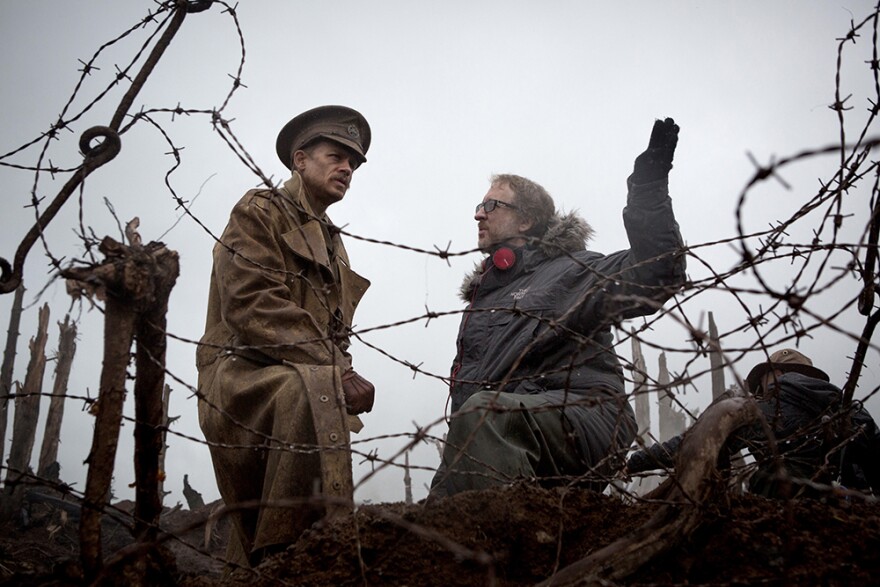“The Lost City of Z,” writer/director James Gray talks about how he approached adapting the source book for the screen, and what he had to leave out of the final cut; Facebook announced it’s shutting down its in-house virtual reality studio and will instead invest in content makers from outside the company; The new movie, “The Circle,” is about a very powerful Internet company – imagine Facebook combined with Google. John talks with director James Ponsoldt about his film and his own social media habits.
'Lost City of Z' director James Gray explains why filmmakers must be 'relentlessly egotistical'
The current film, "The Lost City of Z," is based on the true story of the British explorer and cartographer Percy Fawcett (played by actor Charlie Hunnam).
Fawcett ventured into the jungles of Brazil in the early 20th century, believing he had found signs of a lost civilization that was as advanced as any city in Europe.
Fawcett and two companions went missing in Brazil in 1925, but were never heard from again. His travels — and the fruitless efforts to find him — were the focus of the book, “The Lost City of Z,” by David Grann.
Doing justice to a life story as insane and multifaceted as Fawcett’s was a challenge for writer/director James Gray.
Interview highlights:
On how he approached writing the story for the screen:
You look at someone like Percy Fawcett and you think to yourself, This guy didn't live a life. He lived about nine. He went to the war. In World War I he was in the jungle, he was in Ceylon, he was a spy in Morocco. I would be content, or maybe not content, with any one of those. It's almost like it's an embarrassment of riches. You almost have too much story. It's a potential disaster because you only have two hours in a movie. If it were a TV show, you had 19 hours or whatever, you could make The Adventures of Percy Fawcett and every week you would see him going off to some other place. But a movie is a very different animal. You can make just as big a mistake including too much stuff as anything else. The adaptation became very difficult for that reason.
On choosing the main narrative of the story:
In some ways, it's a very simple answer, which is that you look at what is actually interesting to you. I see myself in David Grann, which is not to say anything bad about David Grann, he was a marvelous guy — a terrific guy and a fantastic writer. It's like, goofy, out-of-place, New York guy walks around Amazonia. I felt like I had seen that version of an adaptation before. It's called "Adaptation." It's a wonderful movie and Spike [Jonze] did it brilliantly, and [wrtiter] Charlie Kaufman. I didn't want to do the same thing. I felt that what was, in a weird way, new — since it's old — was to tell a straightforward narrative about this man. The real decision that I thought was critical was to say, What is the thread? What is the through line? What is interesting about this guy? What motivated his obsession? An obsession is both a beautiful and a dangerous thing.

On Fawcett's misconceptions about Amazonia:
He was a product of Victorian England, relentlessly puritanical. A very strange culture in many ways, extremely repressed — sexually repressed, emotionally repressed. The major conflict in him was to reconcile both sides of this thing — his intrepid nature, the need to escape this very restrictive culture, and yet, not being able to free himself from it completely. He certainly did go a little nuts, but I don't think that craziness comes at all from confronting and meeting and engaging the peoples of Amazonia. I think it came from WWI, which tells you something else. It tells you that this whole Western idea of superiority is nonsense. That was mechanized death on the scale the world had never seen. The whole idea is that he goes down to Amazonia and the traditional story is, Oh my god. All those terrible natives have totally driven him crazy and destroyed him! When in fact, it's the opposite. That, in some ways, is what gave him support and emotionally succor. The war and Western civilization — Western Europe — is what almost killed him.
On the war's impact on Fawcett's psyche:
Particularly the battle that he was in — The Battle of the Somme — which is one of the most horrific battles in the history of the world. That war was a message that we have entered a new realm, a new way of conceptualizing death and making it into a part of industry almost. I felt that, in a story like this, that was the major confrontation in his life.

On the characteristics of a director:
Movie directors are very narcissistic people. I always say that the challenge of being a movie director is that you have to be relentlessly egotistical, selfish and narcissistic in order to get the movie [approved]. Then once you're in the process of making it, you have to all of a sudden turn around and forget all of that narcissism and ego and allow others to contribute to the work. In my case, I must say I am very grateful that my wife and children come with me. They came with me to the jungle, they came with me to the U.K., and that's very rewarding. But the challenge is still there. You're working 15-to-20-hour days and you don't see them very much. And then you wind up doing things like I once did — calling my wife the name of Joaquin Phoenix's character from a movie I was making. That didn't go over very well. But this is how you personalize it. You have to put yourself in the process. To get a movie made, you really have to be an obsessive. There has to be something wrong with you. This whole process is insane and if we step back from it, I think we can see that.

On shooting in the jungle and if he learned from Francis Ford Coppola and Werner Herzog's mistakes:
Well, I made a very dumb joke once about this — about Francis Coppola. I said that I had reached out to him and he said, "Don't go!" Which is not true. It got printed and it's been horrible. I did speak to Francis about it and he is very supportive. I didn't speak to Werner Herzog. I don't know Werner Herzog at all. I probably should have. On the other hand, he shot "Fitzcarraldo" [in] Iquitos, Peru. When he shot "Fitzcarraldo," I believe 10,000 people lived in Iquitos, and now I believe it's over a million because of the oil. So the character of where he shot is very different than it was in 1980 and '81. In the case of Francis, he shot in the Philippines and that is its own set of challenges. Every time you shoot a movie, an entirely new set of challenges faces you. It's why you can have the same cast and the same crew and the same locations a year later and they would make a completely different film.
On the lasting message in Fawcett's story:
I don't know if human beings have changed very much. If it weren't the case, you'd go see "Hamlet" and it would make no sense to you. Or you'd see "Oedipus Rex" and you'd be like, I don't understand what that is. But we fight the same battles that the Greeks fought. In some sense, the lesson is the same as it always was, which is that human beings struggle to find meaning and sometimes they fail and sometimes they succeed. But this struggle, this awareness of our mortality, leads to a kind of insanity — a need to rank, a need to create a hierarchy. The upperclass looks down to the lower class. He looks down on her. He puts his wife in a sexist box. Western Europe looks down on South America and oppresses South America. The people of South America, they have their own hierarchy. I feel like that hasn't changed one bit.




